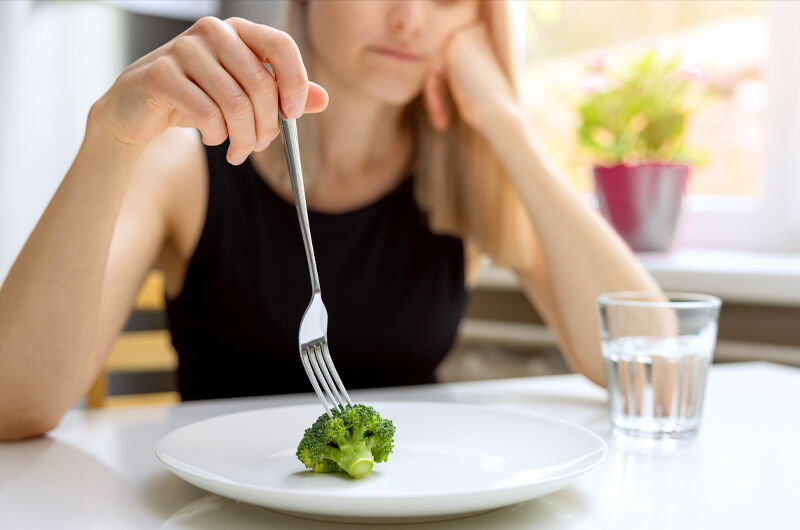The winter, the snow, the Christmas atmosphere that urges us in every street and shop... Everything that surrounds us in the Christmas period gives the idea of "cuddle" and our mind immediately travels with delight and fear to lunches. and dinners.

Per many, the Christmas holidays represent a step backwards in terms of health and, above all, the physical results achieved during the year. Here, if we spend carefree and happy days with our loved ones, the next day we find ourselves regretting the calories consumed seeing the needle of the balance that condemns us with silent severity. Yet the holidays can be beneficial to our fitness and body-building journey!
In this article we will see not only how to keep fit during the winter, but also how to take full advantage of the Christmas and New Year period in order to live it in complete serenity and in a functional way for our well-being.
How NOT to prepare for the holidays
First, we need to understand how to prepare for the holidays. Yes, because the main mistake is made upstream. Almost everyone has a tendency to strongly decrease the calorie input in the pre-Christmas period: there are those who fast for a week, those only the day before, those already starting to have a very restrictive diet from the first of December.
The basic logic, in fact, is flawless: if I eat a lot in the days of the celebrations, I use a compensatory strategy before and after the holidays. In this way, over the course of the month, the calories ingested are roughly the same. Too bad that our body does not think so and, if it is true that the caloric average has an important role in what the results are, it is also true that there are short-term effects that we cannot ignore.
Our body thinks in terms of survival. When he perceives a shortage of food, he "believes" that there is a situation of famine and suitable regulatory mechanisms (hormonal, first of all) that lead us to waste less energy.

So let's imagine the case of a person who starts "dieting" from the beginning of December. From one day to the next, she will consume fewer calories, pay attention to the amount of carbohydrates and fats ingested, reduce herself to consuming a single glass of wine at the Christmas dinner with colleagues, etc.
What happens in the body in the short term is that it begins to use fat, the energy reserves available, as an energy substrate, to carry out normal daily activities, activities that require many more calories than it is now consuming.
In a short time, with a restricted caloric regime, our body enters a phase of "general alarm". The body "thinks" that we can no longer get enough nourishment so that, at this rate, even the precious reserves of fat will be consumed and we will risk starving. A solution must be found.
Here then is the first input given by adipocytes (fat cells) which reduce the secretion of the hormone leptin which, in turn, signals the need to eat more to the hypothalamus. Thus the sense of hunger increases and the levels of thyroid hormones (among those responsible for our energy expenditure) decrease. In the long run, a weakening of the immune system can also appear, caused more by the impoverishment of the diet than by the leptin itself.
We finally arrive at the parties. Our friend has now lost a lot of weight, he has probably also started doing physical activity which contributes to creating even more deficits. Here we are at Christmas Eve dinner, the first big meal: the next day he feels that something is wrong. The stomach and intestines are in great turmoil and are struggling to digest all that food. No, it could be otherwise! The restriction of sources and the low-calorie diet have created enzymatic specialization and a reduced efficiency of the gastrointestinal system. On Christmas day, at lunch, things seem to have improved and, after all, all efforts have been made for this moment. Here then begins another great meal that lasts practically until the evening. The next day the situation is tragic.
The weight has soared. The body suddenly found itself absorbing much more sodium than normal, creating strong water retention. Above all, he has to manage the intake of many calories in bulk, in a context in which the body had every intention of accumulating fat!
In fact, what happens in these cases is that the first use that our body makes of food is to restore the adipose reserves that were used in the period of "famine", leaving us more swollen and with more fat mass than before. Here, with the intention of reducing the impact of Christmas dinners, we have done exactly the opposite.
How to prepare for the holidays in a healthy way
Let's now see a much smarter attitude to prepare for the holidays. First of all, let's start immediately to set up a normocaloric diet . In other words, we want the body to absorb a quantity of calories equal to those it burns. Let's give him the energy he needs. To do this we can use our diet calculator.
At this point, the best thing to do is to maintain a weight room training plan throughout the Christmas season. This will allow us to have two important effects:
- On the one hand, normocaloric nutrition will not lead to any downregulation of the metabolism and, the fact that it is balanced with training, will make the body able to burn calories effectively.
- On the other hand, with training in the weight room, we will give the body a clear input to direct excess nutrients to restore muscle stores (muscle glycogen) and initiate muscle overcompensation processes (hypertrophy). Basically, we will direct the nutrients towards the myocyte (muscle cell) rather than towards the adipocyte!
How to train and eat during the holidays
We finally arrive at the days of the long-awaited holidays. The most precious advice I can give you is to continue training in the weight room even during the Christmas and New Year period.

Everyone has their own availability, mind you , but a good morning workout on December 25th is a real satisfaction for body and spirit! Training starts the day in the best possible way, allows us to discharge energy before enjoying the family in a warm and welcoming environment and, last but not least, it leads us to better manage the nutrients we are going to eat.
After training there is a natural shift of GLUT-4 in the cell membrane. These are the glucose receptors that allow it to penetrate into the tissue (muscle or fat). Therefore, eating after training will allow us to intelligently exploit all the nutrients we are going to assimilate!
Conclusions
We have seen that cutting calories a lot in the run-up to the winter months and holidays in general may not be a good idea.
The ideal is to maintain a healthy and active lifestyle throughout the year and always dedicate time to the weight room (which allows us to make the most of the nutrients we are going to eat).
With these precautions, you will see, it will certainly not be 3-4 large meals that will invalidate the work you have done during the year!
At this point, however, all that remains is to see how to behave after the holidays! This, my friends, we will find out in another article!
Tell us in the comments your strategies for keeping extra pounds at bay during Christmas!
